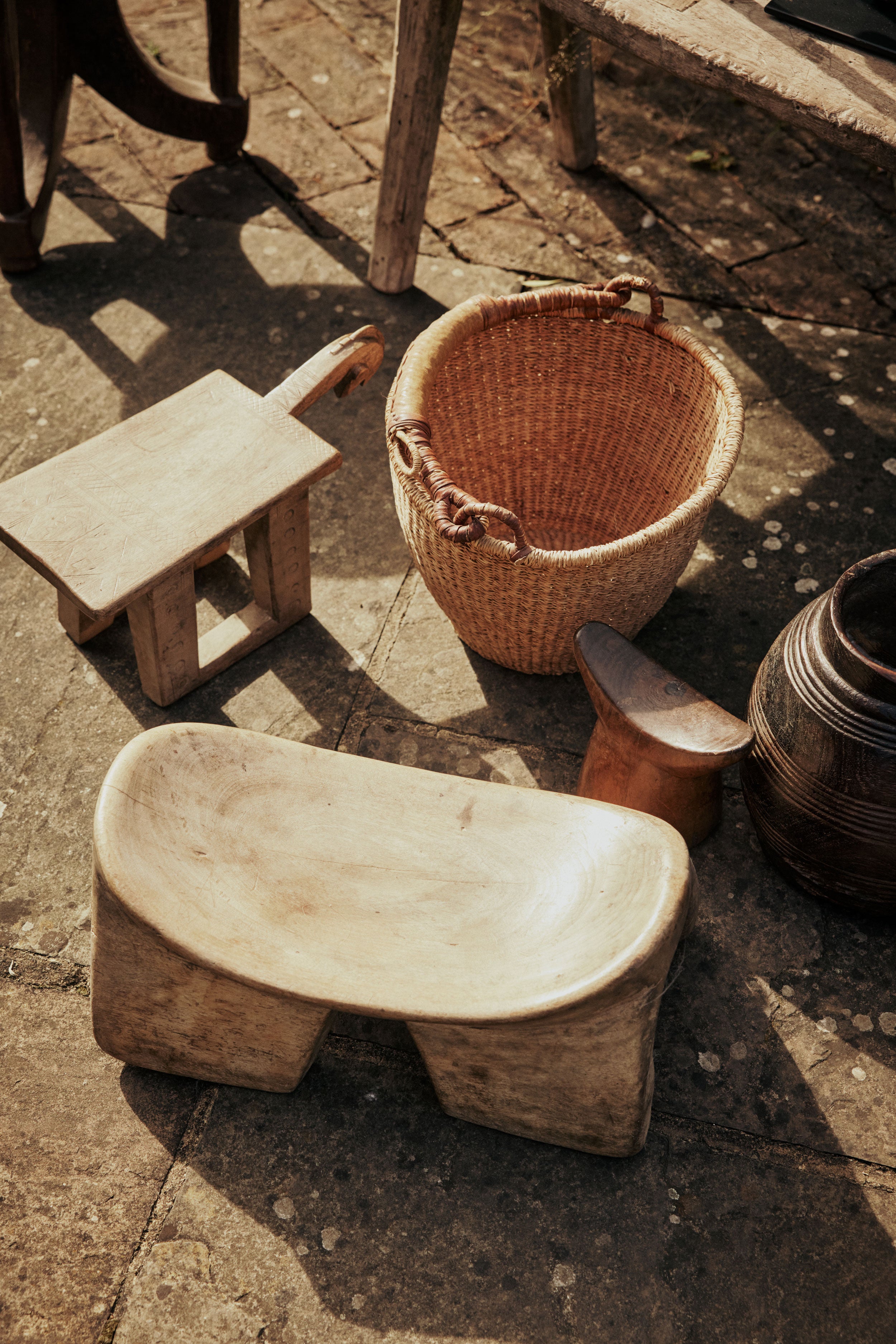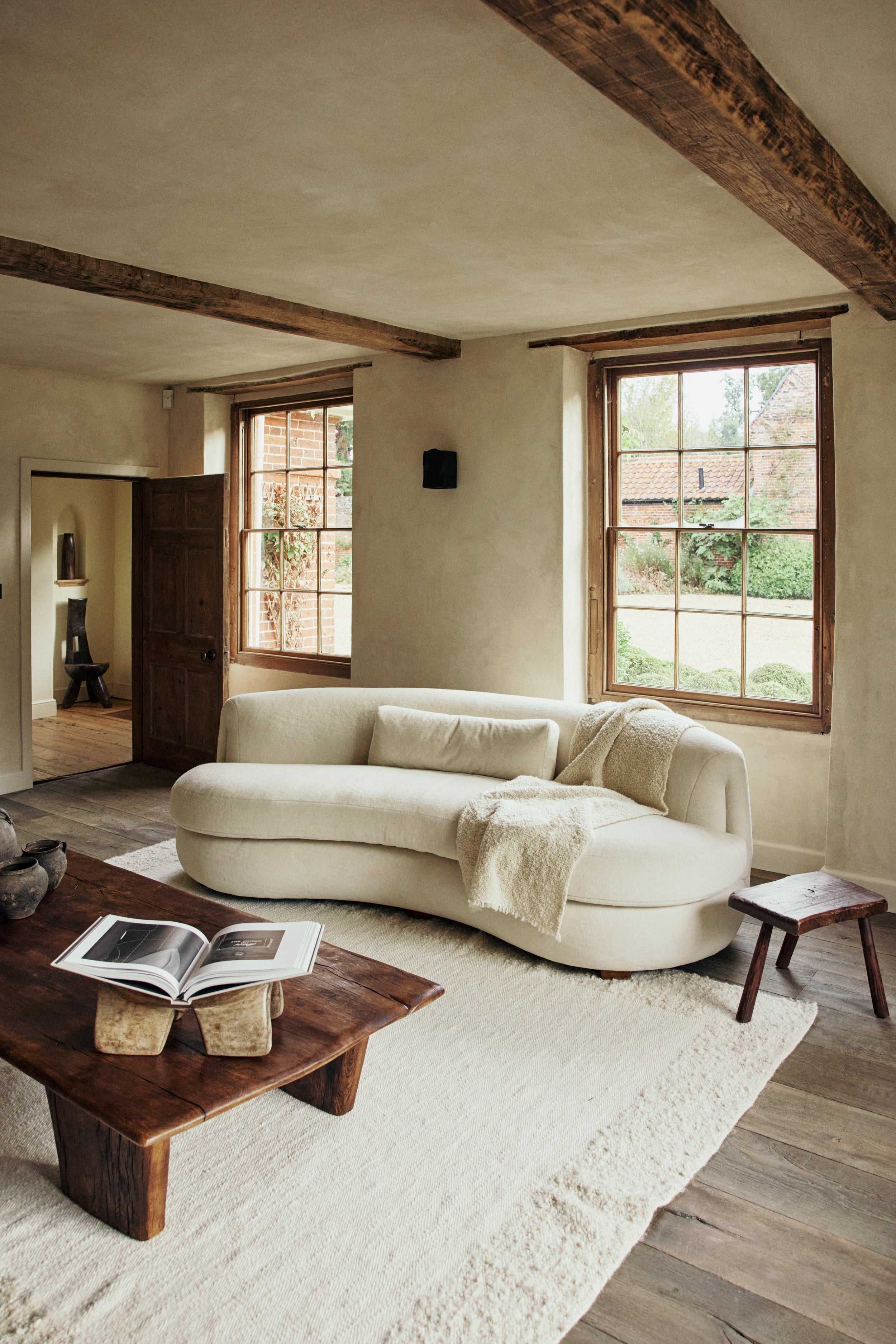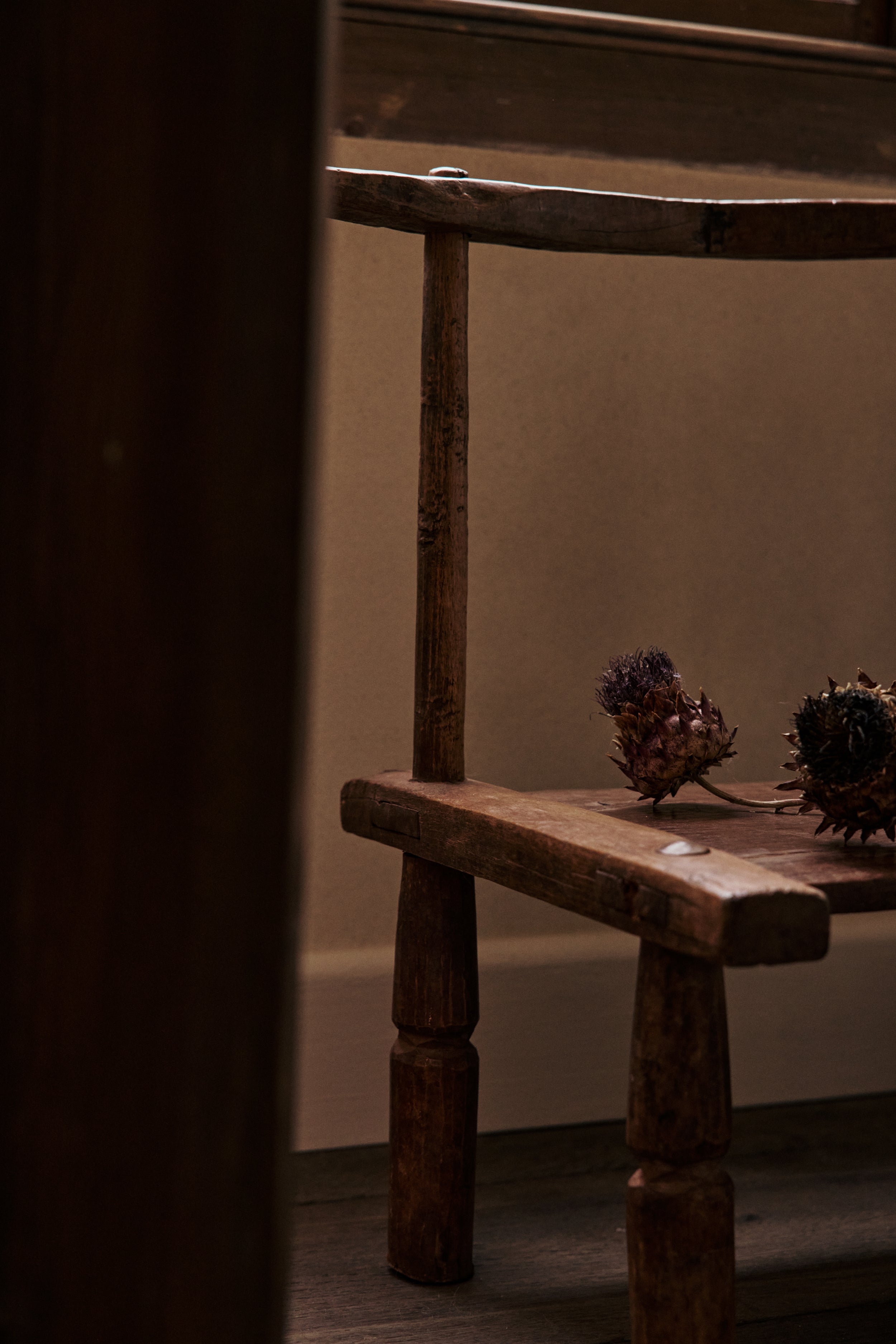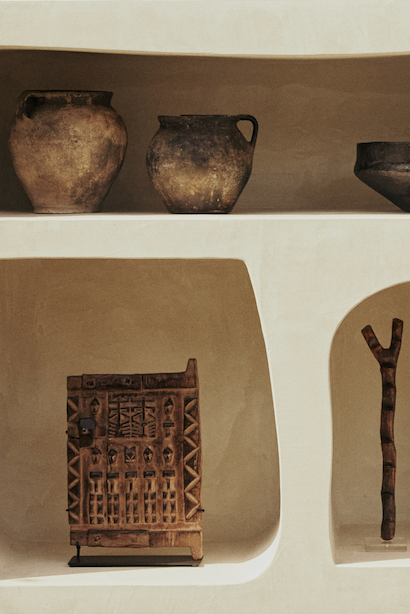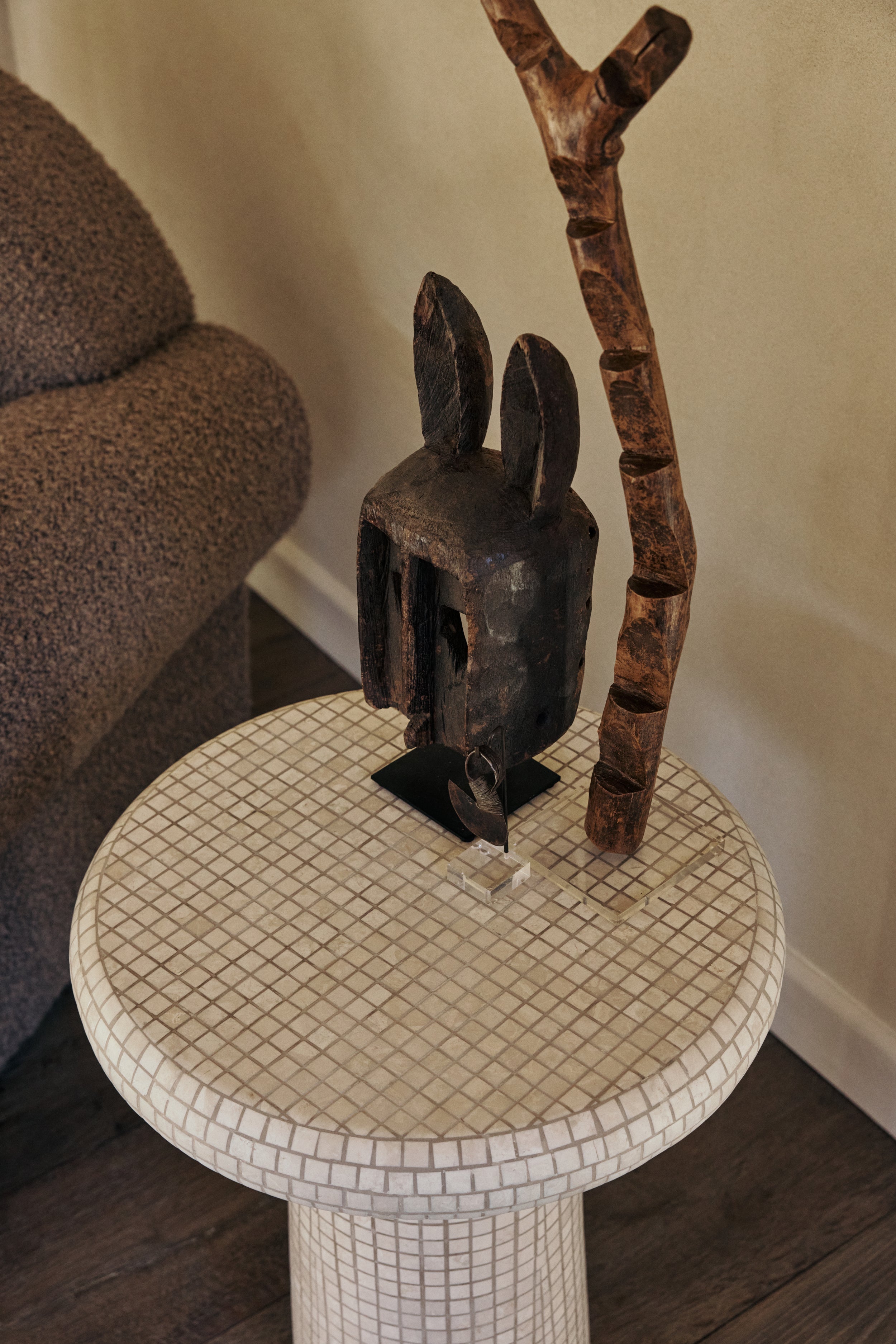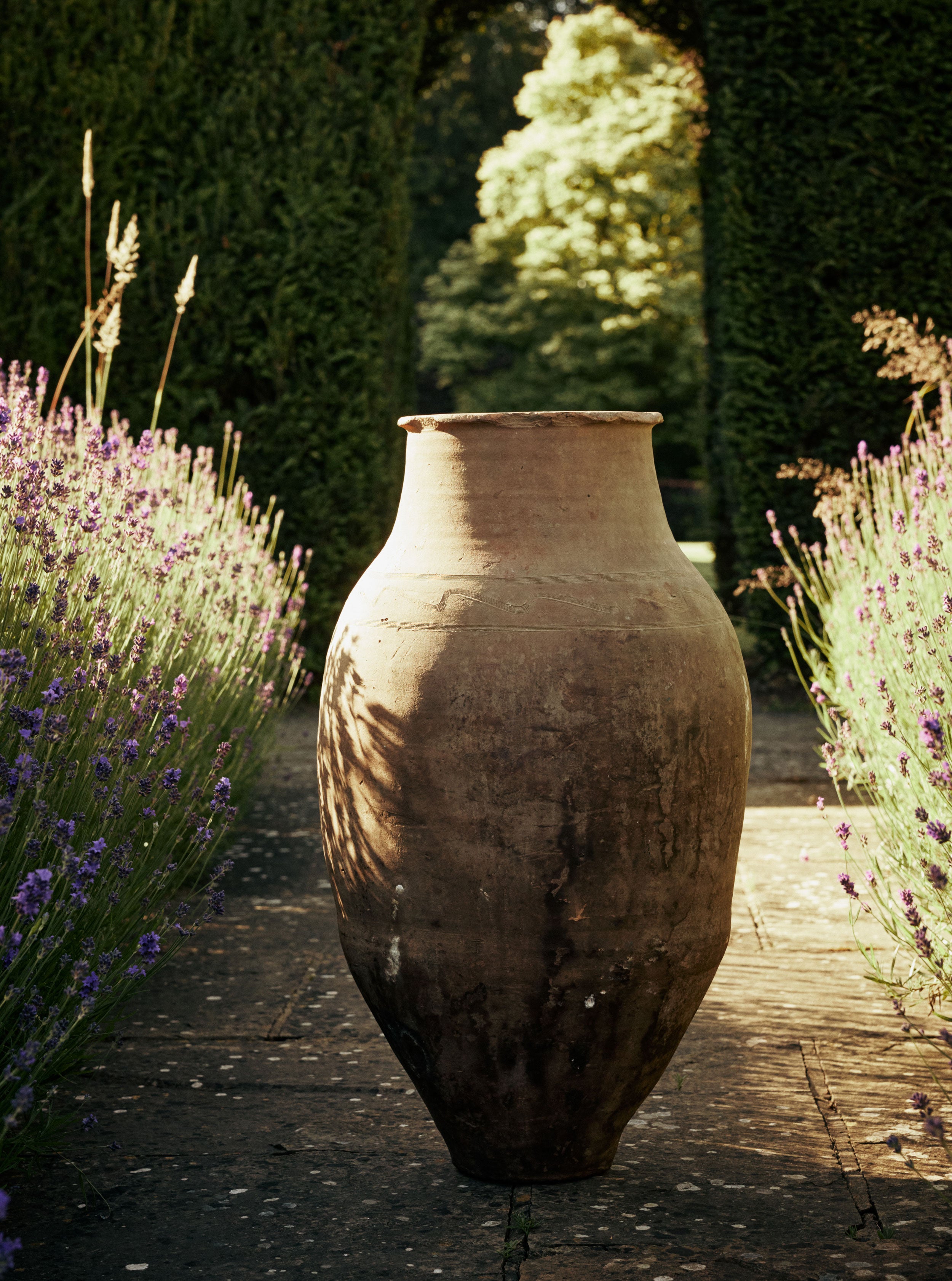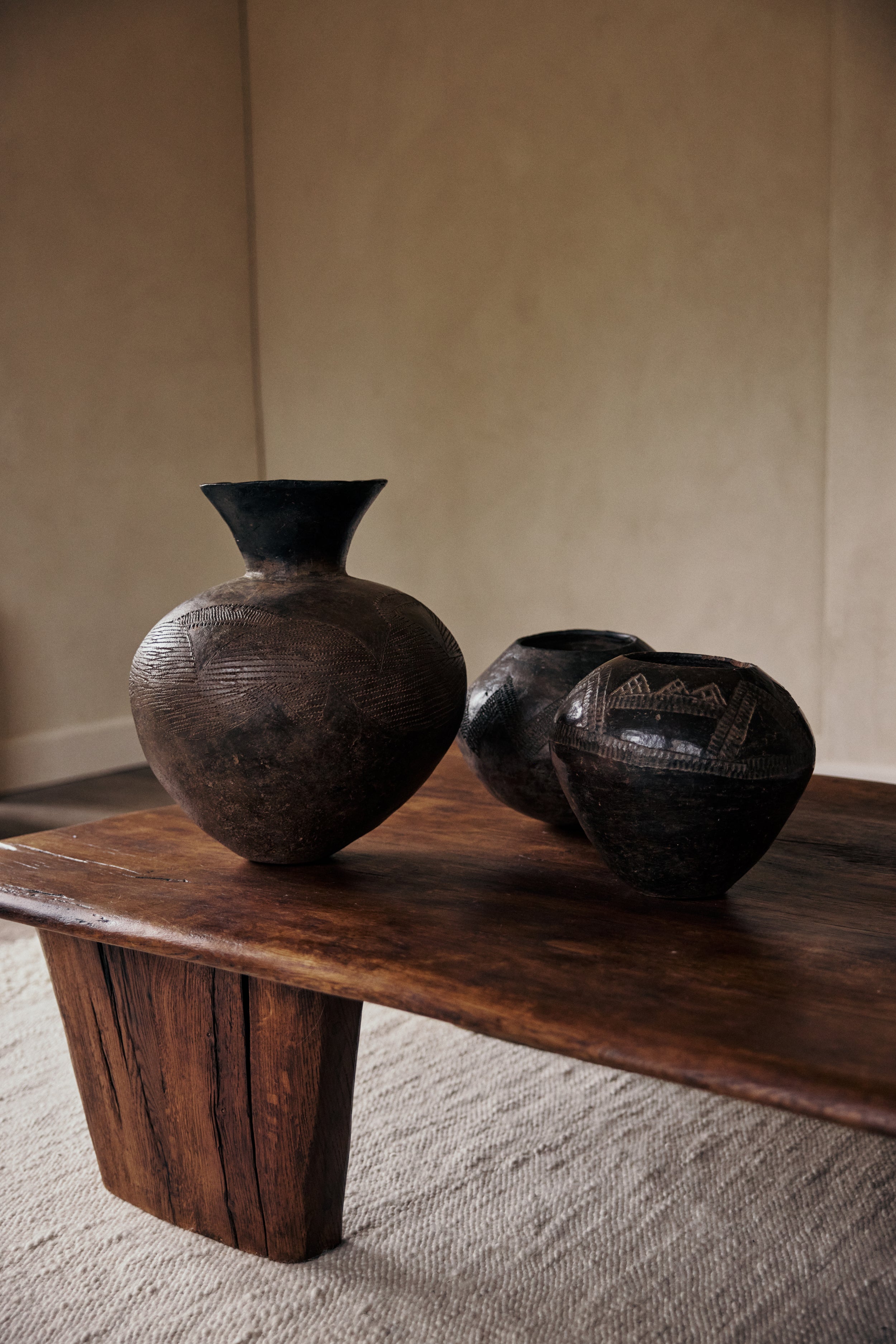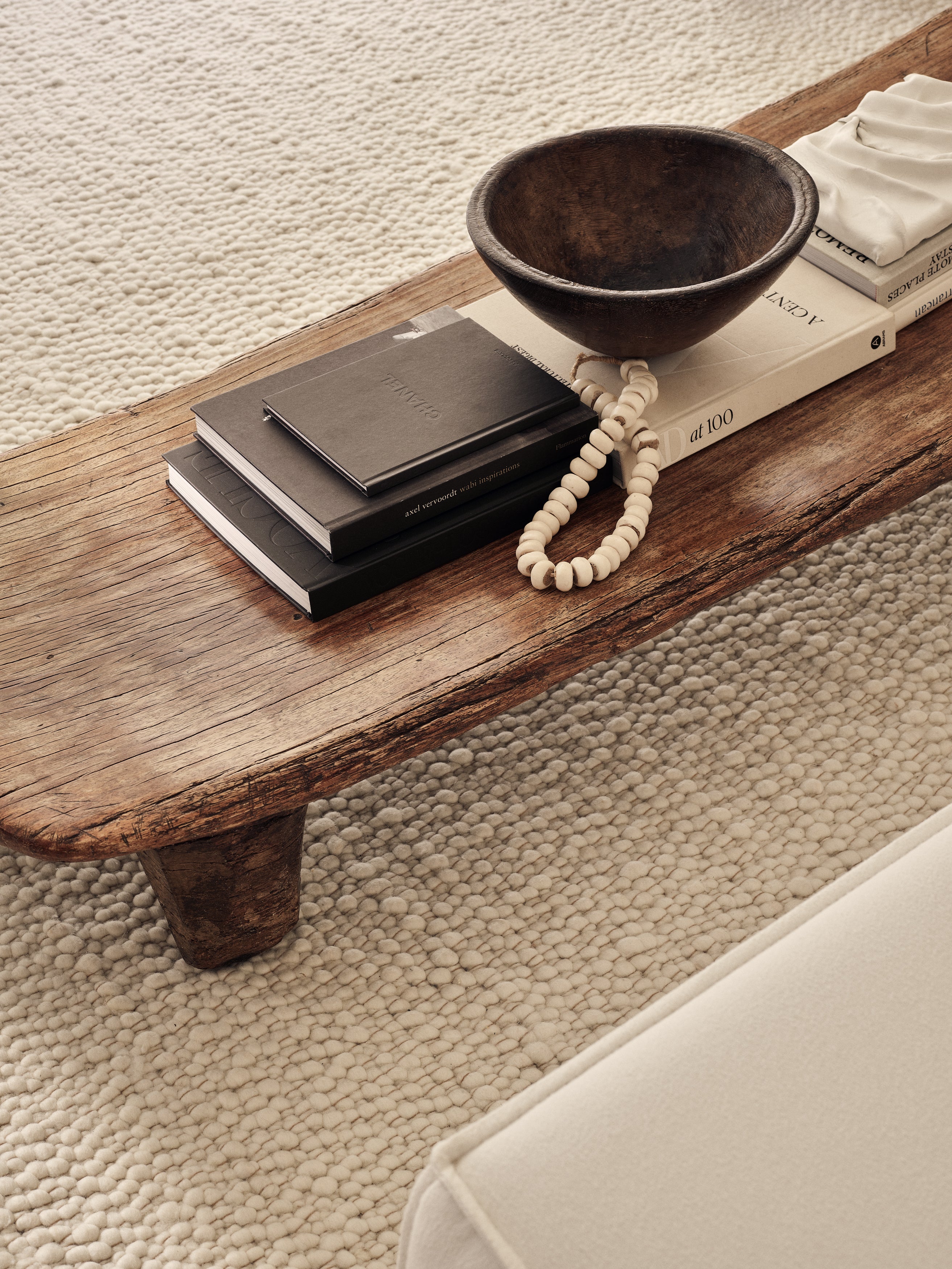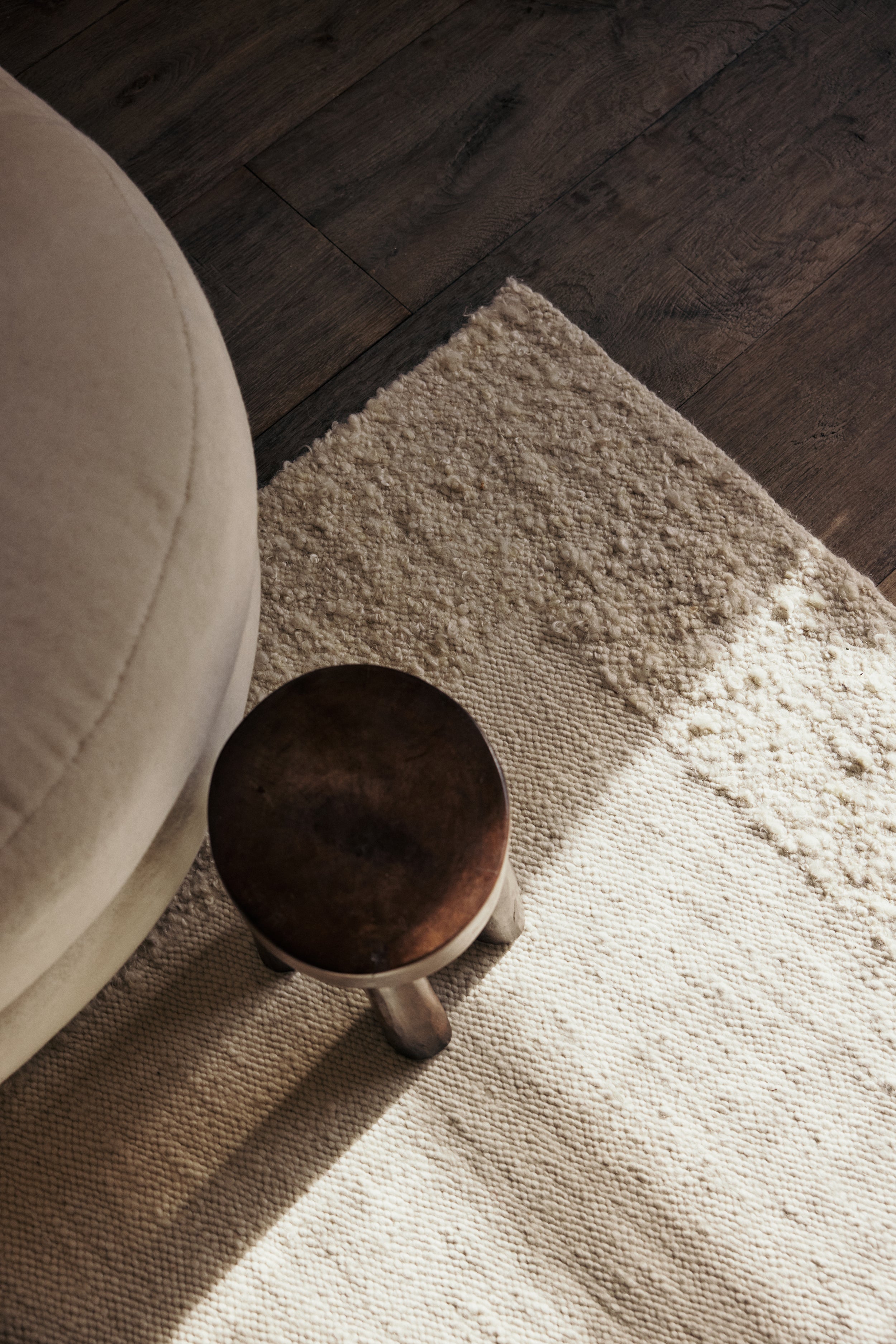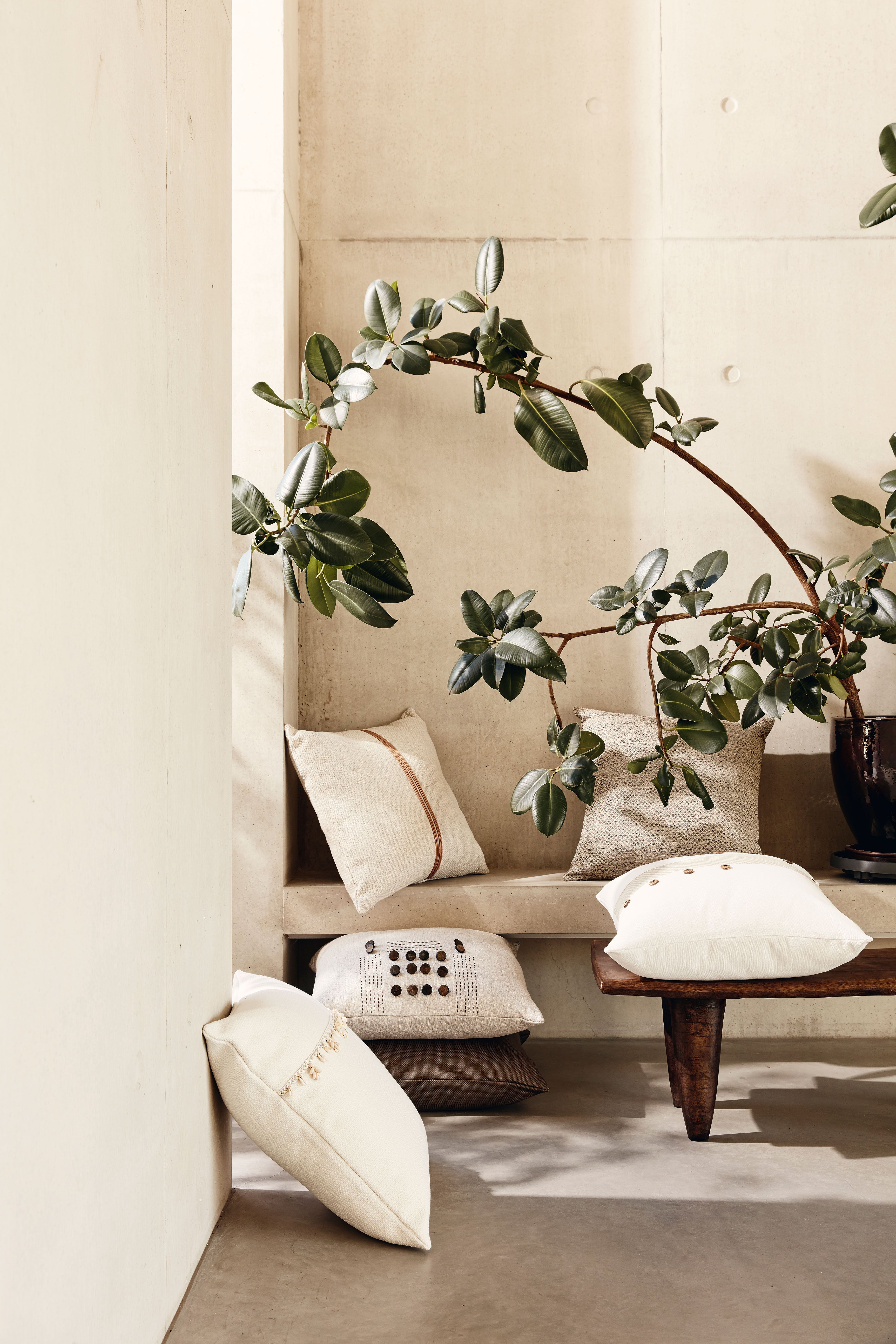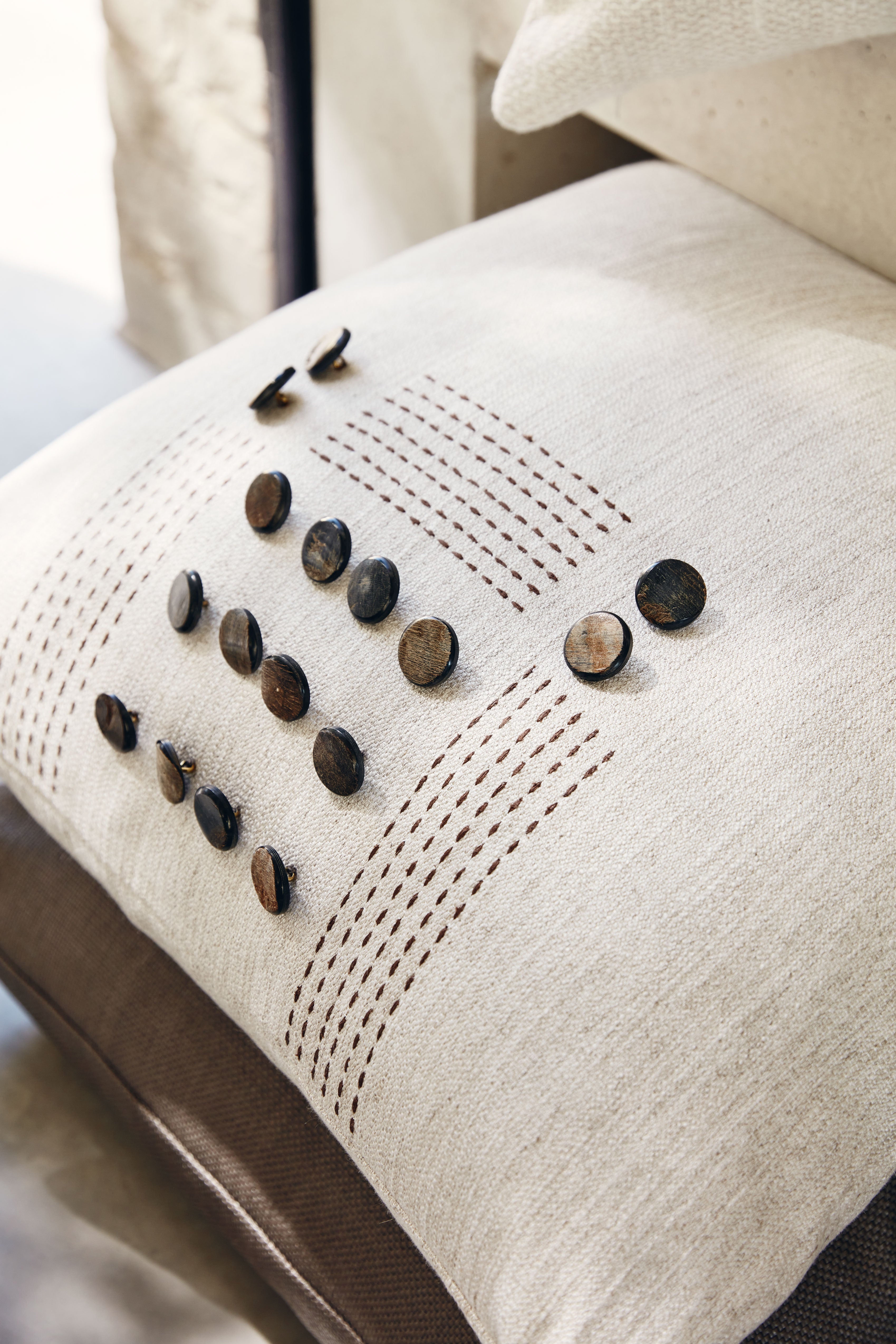Wood
Whilst each handcrafted wood piece is unique and will vary in patina, age and colour, wood care for old wooden objects to our Made by Khayni collections is similar.
To maintain, dampen a lindt-free cloth with plain water and wipe the surface. Wood will become stained or damaged if there is any excess water left for extended periods. If this occurs ensure you dry the area as quickly as possible.
If you scratch wood, you can use natural beeswax for furniture over the area and this will help to soften and repair. You can apply a thin layer of wax once or twice a year to wood should you desire a waxed finish.
Wood may change over time, especially thick-cut wood as it may continue to dry. Additionally, if wooden objects or wooden furniture is exposed to significant fluctuations in temperature and moisture slight cracking may occur as the wood will expand and contract.
Plaster
Our collection of plaster furniture is finished with a protective treatment which is water and dirt-repellant. The plaster is also UV resistant as they use natural pigments.
Whilst protected, it is important to remove all liquids or spills (especially acidic or caustic products) from the table as quickly as possible to avoid any permanent damage. To maintain, dampen a lindt-free cloth with plain water and wipe the surface.
Reasonable care should be taken to protect the table from rough edged objects which may scratch the surface.
Upholstery + Fabrics
We select fabrics made with natural, sustainable fibres which have natural manufacturing processes and so slight colour variations will occur from sample swatches to finished products.
To preserve longevity of upholstered furniture spot cleaning using water should be undertaken if there are any spills. Start off by using a damp lindt-free cloth of similar colour to upholstery with plain water to remove any stains. If absolutely necessary you may wish to try using a natural soap or product to water and dampen your cloth with that. Always test a small spot before applying it to a larger area. Once cleaned, spot dry the fabric to remove any excess water.
Machine washing is not recommended and may compromise the look and feel of fabrics we use.
Rugs
Our rug collection is hand-woven with natural fibres.
To preserve longevity of rugs vacuum clean with smooth nozzle and pot cleaning using water should be undertaken if there are any spills. Start off with using a damp lindt-free cloth of similar colour to the rug with plain water to remove any stains. You may wish to use a delicate laundry liquid or natural soap designed for washing wool should this be needed. Always test a small spot before applying it to a larger area. Once cleaned, spot dry the rug to remove any excess water.
Small rugs can be washed on a machine washed on a wool cycle.
Reverse rugs periodically if possible.
Initial fluffing is normal and can be removed with a brush or scissors.
Stone, Metals & Natural Fibres
To maintain, use dampen a lindt-free cloth with plain water and wipe the surface. Ensure any excess water is not left for extended periods and dried as quickly as possible.
Ceramics
For old ceramics, use a damp lindt-free cloth with plain water and wipe the surface. Ensure any excess water is not left for extended periods and dried as quickly as possible. Old, antique ceramics are suitable for outdoor use in most climates.
Any imperfections in Zulu pots can be softened and repaired with a shoe polish of similar colour to the pot.
For modern ceramics we advise extra caution when handling as the clays can react differently to water. Spot test a small area with a damp cloth prior to wiping down.
Filling ceramics with water is not recommended and it is advised to use a container inside the ceramic to hold any water.
Throws
Our throws are hand-woven using natural wools and are recommended as dry-clean only.
General Care
To avoid stains it is important to not let any liquids stagnate, as once these are absorbed by the material it is very difficult to remove them and will create long lasting damage.
Never cut or use any abrasive tools as this will cause scratching to any material. This includes dragging any objects along the surface as this will also cause scratching.
Do not place hot elements on materials directly as this will cause marking and sudden heat difference may also cause cracking. Always use coasters when placing glassware on tables to avoid water rings.
Use a Lindt-free cloth with plain warm water for all maintenance or spills first. If you wish to use any further cleaning materials we suggest you seek advice from suppliers who specialise in the products, do a test patch and follow their instructions.
